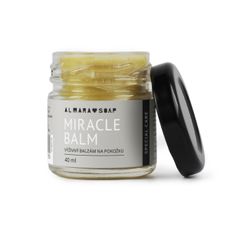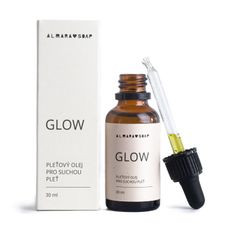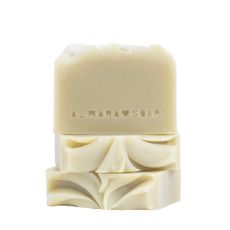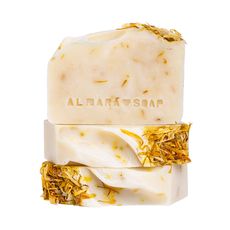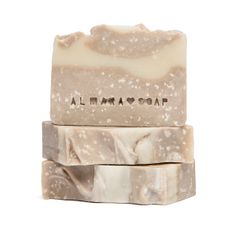Oat Cake
Natural oatmeal soap for dry and sensitive skin
Completely unfragranced soap for dry and sensitive skin with organic oat flour for overall skin soothing and gentle exfoliation, white clay, Moroccan brown clay, and adorned with organic cocoa powder.
Contains a high proportion of carefully blended plant oils of the highest quality, including cold-pressed castor oil, which is known for its nourishing and softening properties.
Warning: It is better to wet the soap before use to soften the exfoliating component.
Weight: 90 g (± 5 g)
In case of allergic reaction, discontinue use. Avoid contact with eyes, rinse with water in case of contact.
Composition and ingredients
water, coconut oil, palm oil (RSPO), sunflower oil, olive oil, organic oat flour, castor oil cold pressed, white clay, moroccan clay, organic oatmeal, organic cocoa
Inci
Aqua, Sodium Cocoate, Sodium Palmate (RSPO), Sodium Sunflowerate, Sodium Olivate, Glycerin, Avena sativa Kernel Flour, Ricinus communis Seed Oil, Kaolin, Avena sativa Kernel, Moroccan Lava Clay, Theobroma cacao Seed Powder
Selected basic ingredients
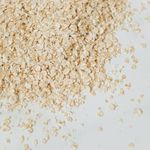

Description
Oat (Avena sativa) is an annual plant (grass) originating from Asia. It is now cultivated in all temperate regions, and both its grain and straw are harvested. It contains proteins, fiber, carbohydrates, starches, sterols, glycosides, B vitamins, vitamin E, flavonoids, iron, zinc, manganese, saponins, and silica and linoleic acid. Oats are used in cosmetics, food production, and dietary supplements.
Learn more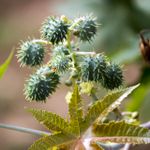

Description
Castor oil is derived from the seeds of the castor bean plant, has a light yellow color and a thicker consistency. It is rich in vitamin E, unsaturated fatty acids, and ricinoleic acid, which is found only in this oil. It is not without reason that it is often referred to as the elixir of beauty.
Learn more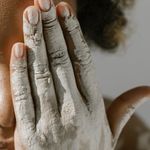

Description
White clay, also known as kaolin, is a mineral powder composed of kaolinite and fine quartz grains. It has a white to light brown color and contains a high amount of silicon. White clay has a wide range of uses and is hypoallergenic.
Learn more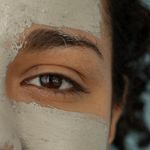

Description
Moroccan clay, also known as rhassoul, is a fine mineral clay originating from Morocco. It has a brown-gray to brown-red color and contains a high amount of minerals such as phosphorus, calcium, sodium, and iron manganese. Moroccan clay is a very versatile natural treasure that can be used to cleanse the skin of the entire body as well as hair.
Learn more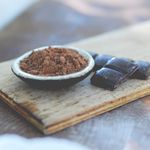

Description
Cocoa is a fragrant and tasty powder obtained from the dried cocoa mass of the cacao tree's fruit, which is a deciduous tree native to South America. The cocoa mass is also processed into cocoa butter, which you can find under a separate tab in our encyclopedia, and cocoa essential oil. Cocoa contains beneficial substances such as proteins, vitamins, minerals, omega-6 fatty acids, flavonoids, and polyphenols.
Learn moreRelated products (7)
You ask
Our soaps are handcrafted using the traditional cold process method – by mixing high-quality plant oils with an alkaline component (sodium hydroxide mixed in distilled water).
The soap mixture is similar to pudding, which thickens over time or with stirring. We color the mixture and pour it into molds according to the design requirements of the soap, allowing it to set until the next day.
A chemical reaction occurs, resulting in the formation of salts of the respective oil (which is why you will find oils listed as "sodium -ate" in the ingredients – for example, olivate). Therefore, sodium hydroxide does not remain in the soap; it transforms into another chemical compound.
Once removed from the mold, the soap is cut and must be left to cure for several weeks – during this time, residual water evaporates, causing the soap to harden. It can only be sold after this period.
We use original raw materials for production, meaning no prefabricated intermediates. Only in this way can we guarantee high quality and complete transparency. You will not find soap flakes, foaming agents, preservatives, salt, soda, or synthetic glycerin in our soap.
Although it may surprise some, the beautiful colors and decorations of our natural soaps are truly provided by natural ingredients.
We take care to ensure that no two soaps are the same. We decorate the tops of the soaps and also add herbs inside, so that washing with them is enjoyable and you finally look forward to your bath and shower!
In our soaps, you will most often find:
- clays
- herbs
- herbal powders
- food ingredients (oats, cocoa, coffee, carrot puree, apple puree, etc.)
- functional ingredients such as Ayurvedic powders from various herbs, activated charcoal, aloe vera, ground young barley, etc.
We do not use any synthetic dyes, only the best from nature.
Yes, they contain it, but only the glycerin that occurs naturally as a byproduct of the saponification process, and we do not artificially add it to the soap.
Glycerin is commonly added to products due to its ability to moisturize the skin. Always inquire about its origin. It can be plant-based (oils), synthetic (petroleum), or animal-based (fats).
High-quality natural soap is the best choice for several reasons:
- Liquid soaps contain foaming agents, preservatives, and other unnecessary synthetic ingredients that are not essential for cleansing.
- Thanks to its pure composition, solid soap does not strip the skin of its protective barrier and does not unnecessarily irritate it. Our soaps do not dry out the skin.
- From an ecological standpoint, solid soap is a great zero-waste option.
- Solid soap won't spill anywhere and is an excellent travel companion.
All our soaps are vegan. You can always find this information listed for each product.
Soap belongs to so-called amphiphilic substances, which have both lipophilic and hydrophilic properties. Therefore, soap contains molecules of dual nature. Hydrophilic molecules are attracted to water but repelled by fats and proteins, while lipophilic molecules do exactly the opposite – they repel water and bind to oils and impurities on the skin. Dirt gets trapped in the soap lather and is washed away along with the soap from the skin.











